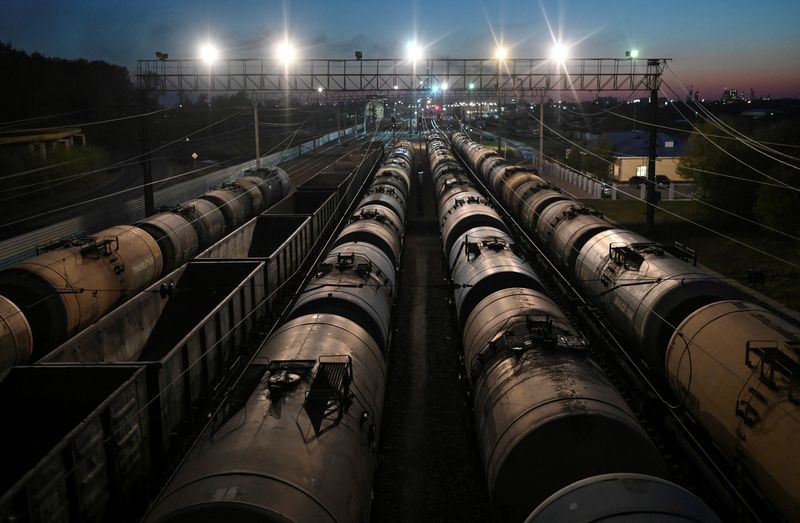By Bozorgmehr Sharafedin
LONDON (Reuters) - Oil fell on Wednesday on fears that COVID-19 cases could rise, but prices drew some support from stimulus measures and hopes for positive tests of a drug that could save some critically ill patients.
Brent crude (LCOc1) was down 21 cents, or 0.5%, at $40.75 a barrel at 0930 GMT. U.S. West Texas Intermediate (WTI) (CLc1) fell 31 cents, or 0.8%, to $38.07 a barrel.
Oil prices were influenced by opposing forces at the moment, said UBS analyst Giovanni Staunovo.
"Positive risk sentiment as gauged by rising equity markets driven by aggressive monetary and fiscal stimulus measures which keeps supporting oil prices as well, on the other hand a potential second wave of infections weighing on oil demand," he added.
The administration of U.S. President Donald Trump was reportedly preparing an up-to $1 trillion infrastructure package to support the economy.
To contain the spread of the virus, Beijing ramped up efforts to contain the outbreak and scores of flights to and from the Chinese capital were cancelled and schools shut.
However, markets found some relief in World Health Organization's (WHO) decision to update its guidelines after results showed the corticosteroid medication dexamethasone cut death rates by around a third among the most severely ill COVID-19 patients.
"We think the oil market is not currently pricing in a significant probability of either second waves of coronavirus cases in key consumers and the associated lockdowns, or anything less than a rapid return to economic business-as-usual," Standard Chartered (LON:STAN) analysts said, pointing to a downside risk for prices in the medium term.
Escalating tensions in the Korean Peninsula also supported prices after North Korea rejected South Korea's offer to send special envoys, and vowed to send back troops to demilitarised border units.
Weak economic activity still weighed on demand. Oil imports in Japan - The world's fourth-biggest crude buyer - slumped in May to the lowest in almost three decades.

Business sentiment of Asian companies also sank to an 11-year low in the second quarter, a Thomson Reuters/INSEAD survey found, with some two-thirds of the companies polled flagged a worsening COVID-19 pandemic as the biggest risk over the next six months.